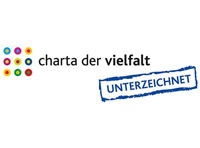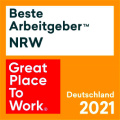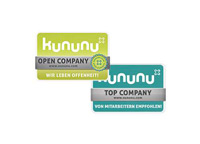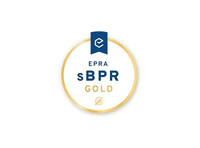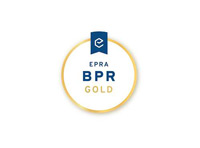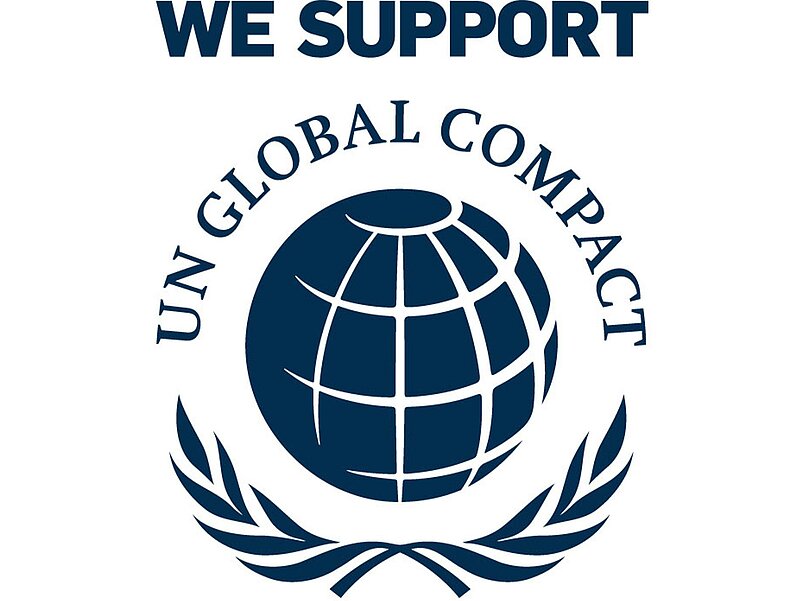Human Rights Policy
Group Guideline on Human Rights
at the same time
Declaration of Principles on Respect for
Human Rights and the Environment
Preamble
LEG Immobilien SE ("LEG") is committed to respecting human rights on the basis of the United Nations Guiding Principles on Business and Human Rights.
LEG is a leading listed property company in Germany. LEG's core business includes the letting of residential and commercial units at a fair price for broad sections of the population and the purchase and sale of property. LEG also offers housing-related services, such as the refurbishment of houses and flats, tradesman services, energy services, green maintenance and caretaker services. LEG's properties are located exclusively in Germany. In its operating business, LEG maintains business relationships exclusively with business partners based in Germany or the EU.
As a responsible company, it is a matter of course for LEG to respect, protect and promote human rights and the environment along the entire value chain. Violations of internationally recognised human rights and national and international environmental protection regulations are not tolerated.
LEG thus pursues the vision of a sustainable and fair global economy in which entrepreneurial success is not based on exploitation and violence, but on mutual respect and integrity.
LEG is committed to the following internationally recognised regulations:
- United Nations Universal Declaration of Human Rights
- Core Labour Standards of the International Labour Organization (ILO)
- European Convention for the Protection of Human Rights and Fundamental Freedoms
- United Nations Guiding Principles on Business and Human Rights
- OECD Guidelines for Multinational Enterprises
- Principles of the United Nations Global Compact (membership since August 2021)
The values and standards contained therein form the basis of responsible corporate governance and are anchored in LEG's internal Group regulations and guidelines. LEG adheres to the requirements enshrined therein in the fulfilment of its human rights due diligence obligations.
§ 1 Task and objective of this guideline
The regulatory framework for the fulfilment of human rights and environmental due diligence obligations by German companies is provided by the German Supply Chain Due Diligence Act (Lieferkettensorgfaltspflichtengesetz - LkSG). The LkSG aims to ensure human rights and environmental standards along the entire supply chain and defines the following due diligence obligations for companies:
- the establishment of an appropriate and effective risk management system
- the annual and event-driven performance of a risk analysis, including the identification of priority risks
- the derivation and implementation of suitable preventive and corrective measures, including monitoring their effectiveness
- the establishment and operation of a complaints procedure
- Ongoing documentation and reporting
- and the creation of clearly defined responsibilities.
This Group Policy regulates and describes all procedures that LEG implements in order to fulfil its human rights and environmental due diligence obligations under the LkSG. It is intended to anchor responsibility for respecting human rights and the environment in all areas of LEG, provide LEG employees with clear guidance for their actions and at the same time provide LEG's stakeholders with comprehensive information.
§ 2 Scope of application
These guidelines are binding for the Management Board and all employees of LEG Immobilien SE and its affiliated companies in accordance with Section 15 AktG.
The principles of human rights and environmental strategy set out in this declaration apply throughout the LEG Group's business operations and must be observed by management and employees in the performance of their duties. LEG expects all business partners to comply with human rights and environmental obligations; this is the basic prerequisite for cooperation with LEG.
§ 3 Protected legal positions
The Supply Chain Due Diligence Act (LkSG) aims to ensure human rights and environmental standards along the entire supply chain. To this end, it defines a series of protected legal positions whose imminent violation is to be prevented through extensive due diligence obligations. The protected legal positions include
- Prohibition of child labour, exploitation and human trafficking
- Protection from slavery and forced labour
- Freedom from discrimination
- Occupational safety and related health hazards
- Prohibition of withholding an appropriate wage
- Right to form trade unions and employee representative bodies
- Prohibition of causing harmful soil change or water pollution
- Protection against unlawful land confiscation
- Protection from torture
- Ban on the manufacture, use and disposal of mercury-added products, mercury compounds and mercury waste
- Prohibition of non-environmentally sound handling, collection, storage and disposal of waste.
§ 4 Human rights and environmental risk management
- Object
The duties of care required to protect the protected legal positions are implemented for our own business operations and the entire supply chain as part of a human rights and environmental risk management system.
Risk management in the context of human rights due diligence includes the following:
- regular and event-driven risk analysis, including the assessment and prioritisation of risks
- the implementation of appropriate and effective preventive measures
- the implementation of appropriate and effective remedial measures
- regular effectiveness monitoring
Through the horizontal and vertical integration of due diligence obligations into all relevant business processes, LEG ensures that risks are recognised and preventive and remedial measures are implemented in a targeted manner.
- Responsibilities
The Management Board bears overall responsibility for respecting human rights and environmental obligations in LEG's business activities.
The Management Board has appointed a Human Rights Officer who is responsible for monitoring LEG's human rights and environmental due diligence obligations. The Human Rights Officer reports to the full Management Board on an ad hoc basis, but at least once a year. If a member of the Management Board is personally affected by a compliance allegation and as part of reporting on the compliance management system, the Human Rights Officer reports to the Risk and Audit Committee of the Supervisory Board.
The Human Rights Officer is supported by a Human Rights and Environmental Due Diligence Committee (" Due Diligence Committee"). The Due Diligence Committee is made up of interdisciplinary members from the areas of compliance, sustainability, purchasing, risk management and human resources. The Human Rights Officer chairs this committee. The committee meets at least quarterly. It discusses the ongoing fulfilment of LEG's human rights and environmental due diligence obligations and their effectiveness and proposes any necessary preventive and remedial measures to the Management Board.
- Risk analysis
LEG conducts regular and ad hoc comprehensive risk analyses with regard to compliance with human rights and environmental obligations within its own business area and at its direct suppliers.
With regard to business partners, an abstract risk analysis is carried out based on the general information provided by the business partners - in particular country of origin and industry - with the help of internal and external sources. Based on business partners' self-assessments, an AI-driven media analysis tool, verified certifications and our own findings from inspections or business transactions, business partners are then checked for specific human rights or environmental risks. This not only takes into account the business partner's country of origin and sector. Product risks, trading level risks, the complexity of upstream supply chains and a wide range of other data are also reviewed in order to narrow down, localise and identify risks at an early stage.
If there are indications or concrete indications of human rights and environmental violations in the company's own business area or in the supply chain, the Human Rights Officer, together with the Due Diligence Committee, checks whether and to what extent an ad hoc risk analysis is carried out.
The risk analysis for LEG's own business area is covered by the Group-wide Compliance Management System ("CMS"). In addition, sustainability risks are integrated into the Group-wide risk management system. Risk management at LEG is subject to constant review and adjustment.
The initial analysis of our own business area and the supply chain has shown that ensuring the following aspects are a priority for LEG:
- Personal dignity and individual appreciation
- Employment and equal treatment
- Good and fair working conditions, safety in the workplace
- Working conditions in the supply chain
- Environmental protection
- Privacy and data protection
On this basis, further risk analyses are carried out and existing preventive measures are recorded and further developed.
- Measures
a) Preventive measures
Based on the risk analysis, LEG develops and implements preventive measures to minimise relevant risks and prevent potential damage. These measures are part of the CMS, which is also intended to ensure compliance with environmental and human rights due diligence obligations. The measures of this CMS include the Code of Conduct as well as various guidelines and internal regulations that concretise it, the whistleblower system and annual and ad hoc training sessions for all employees, in which LEG's Code of Conduct and the internal regulations and guidelines that concretise it are explained and information and complaint options are presented and discussed. Employees and managers can contact the Compliance Officer with any questions relating to compliance and can also find information on LEG's compliance intranet page.
LEG's Business Partner Code of Conduct is intended to ensure compliance with legal requirements and adherence to key environmental and human rights standards when working with business partners.
In the area of data protection, LEG's internal Data Protection Management Team and an external Data Protection Officer advise on existing data protection regulations and monitor compliance with them. In addition, the existing works council committees at LEG fulfil a monitoring function with regard to employee data protection as part of their statutory duties. The Data Protection Officer is available as a point of contact for LEG's management, employees, tenants and business partners as well as the supervisory authority if required.
b) Remedial measures
If LEG becomes aware that a violation of a human rights or environmental obligation in its own business area or at a direct supplier is imminent or has already occurred, it shall take immediate measures to prevent or end the violation or to minimise its extent. With regard to business partners, measures are taken depending on the severity of the breach. As a last resort, LEG terminates business relationships.
c) Effectiveness control
LEG regularly reviews the effectiveness of the implemented preventive and remedial measures as well as the complaints procedure through the Human Rights Officer and the Due Diligence Committee, or if this is necessary on an ad hoc basis. If necessary, the measures are updated immediately.
§ 5 Complaints procedure
Our employees can report possible violations of human rights and environmental standards or possible violations of laws or internal regulations via the internet-based whistleblower system introduced at LEG, which is available around the clock (www.bkms-system.com/leg). The whistleblower can remain anonymous if they wish. All reported incidents are promptly investigated and processed.
The Compliance Officer is responsible for the investigation. The Compliance Officer is independent and not bound by instructions when fulfilling their duties. They must have the time resources available to fulfil their duties and must not suffer any disadvantages.
The Compliance Officer is supported by a Whistleblowing Team consisting of employees from the Legal & Compliance and Internal Audit Departments. The Compliance Officer and the members of the Whistleblowing Team are obliged to maintain confidentiality.
Before concluding the investigation, the Compliance Officer consults the Management Board or - if the Management Board itself is affected by the complaint - the Audit Committee.
§ 6 Documentation and reporting
The implementation of all due diligence obligations is documented on an ongoing basis.
In our annual human rights report to the Federal Office of Economics and Export Control (BAFA), we inform the public about the risks identified, the measures taken and the progress made.
§ 7 Entry into force
This guideline comes into force upon signature. It will be reviewed and further developed at appropriate intervals.
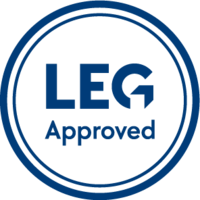
Düsseldorf, Germany, Autumn 2021
(Validity confirmed in Autumn 2023 - Next policy review in 2024)



